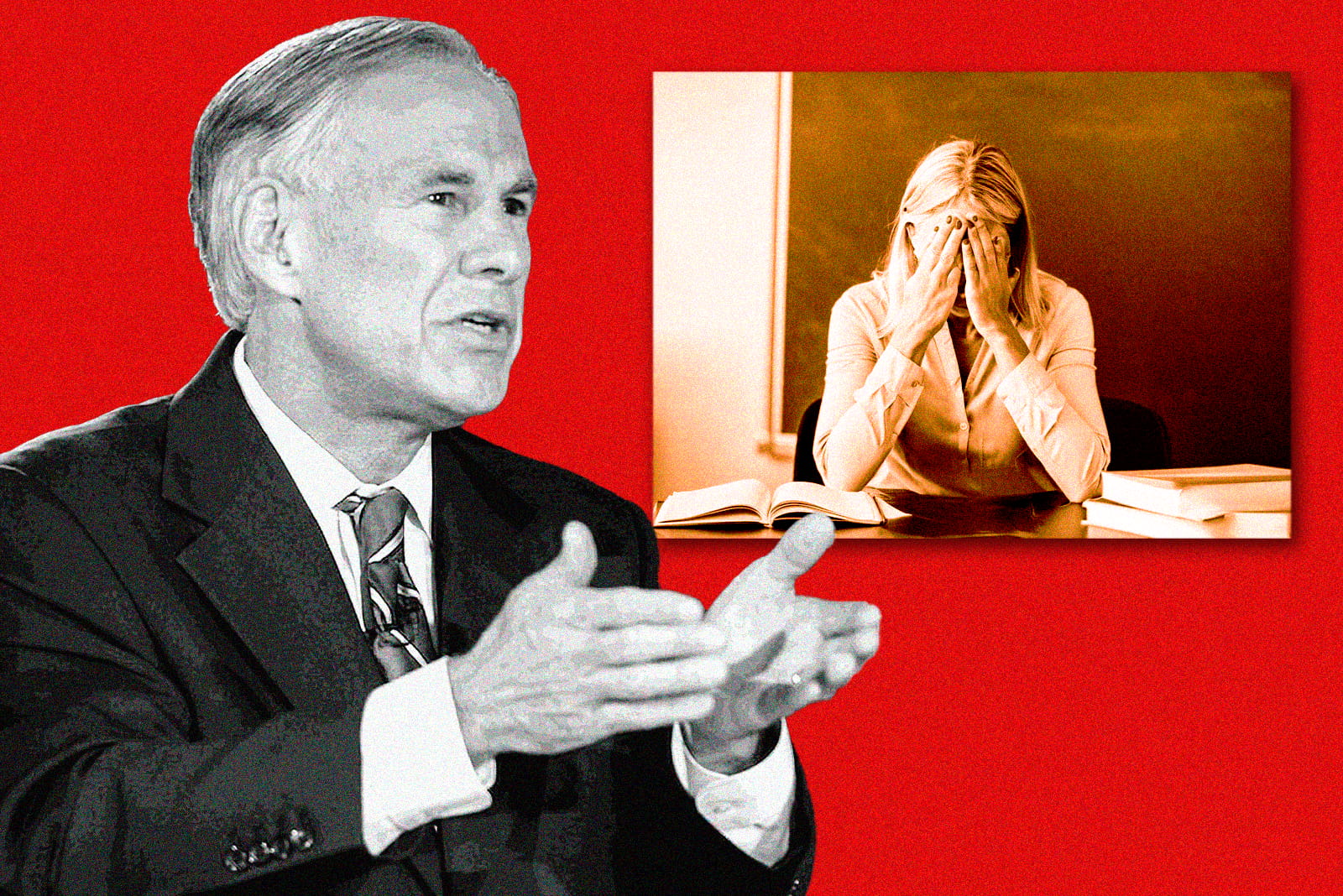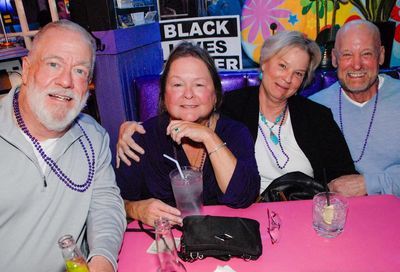Supreme Court will hear cases on anti-gay and anti-transgender workplace discrimination
Court to decide whether the Title VII of the Civil Rights Act protects LGBTQ people from employment discrimination

The U.S. Supreme Court has agreed to hear three high-profile cases that are expected to resolve whether LGBTQ individuals are protected from discrimination in the workplace.
On Monday, the court announced it would hear a consolidated pair of cases after federal appeals courts split over whether gay and lesbian employees are protected by Title VII of the Civil Rights Act of 1964, reports Politico.
The two cases that have been consolidated are Bostock v. Clayton County, Georgia, in which the 11th U.S. Circuit Court of Appeals refused to hear a lawsuit from a county juvenile courts employee who alleges he was fired because of his sexual orientation, and Altitude Express Inc. v. Zarda, in which a business is appealing a 2nd Circuit Court of Appeals decision that found it had discriminated against a now-deceased flying instructor by firing him after a client objected to his sexual orientation.
The court also agreed to take up a separate case dealing with whether transgender status in itself is protected under Title VII, or whether anti-transgender discrimination is illegal under an existing section of Title VII that prohibits discrimination based on “sex stereotyping.”
The case dealing with that matter is R.G. & G. R. Harris Funeral Homes v. EEOC, in which a Michigan-based funeral home chain is appealing a 6th Circuit Court of Appeals decision finding that it unlawfully discriminated against former employee Aimee Stephens, a transgender woman, when it fired her because she chose to transition and decided to dress according to acceptable grooming standards for women.
The owner of the funeral home, Thomas Rost, has argued that he is entitled to fire Stephens under the federal Religious Freedom Restoration Act based on his personal religious beliefs that gender is immutable and fixed at birth.
A decision by the Supreme Court in either case will have a significant impact on LGBTQ rights in America.
Should the court decide that either sexual orientation or gender identity (or both) is protected under Title VII, it would set a legal precedent that would allow LGBTQ employees to sue in instances where they can prove that their status as LGBTQ individuals was a factor in their mistreatment, firing, or denial of promotions.
Should the court decide that neither sexual orientation nor gender identity are currently protected under Title VII, and that “sex-based discrimination” only applies to cases where one is mistreated because of their assigned sex at birth, the only remedy for LGBTQ people would be to change the law by passing a bill like the Equality Act, which would explicitly prohibit workplace discrimination against LGBTQ people and define that type of discrimination as a form of sex discrimination.
Both cases are expected to be argued sometime in the fall, shortly after the high court’s next session begins.
“After many years of courts grappling with these questions, the Supreme Court has decided to step in and resolve whether discrimination against someone for their sexual orientation or gender identity is a form of sex discrimination prohibited by the Civil Rights Act,” Greg Nevins, senior counsel and Workplace Fairness Program strategist for Lambda Legal, said in a statement. “Multiple courts have understood that discrimination against someone for being transgender or being in a same-sex relationship is a form of discrimination because of sex, plain and simple.
“There is no reason for the Supreme Court to carve LGBT people out of a law that by its own terms protects us from discrimination,” Nevins added. “Title VII obviously requires equal treatment of men and women, so it was wrong to treat Donald Zarda or Gerald Bostock differently because of his attraction to men, when a Donna Zarda or Geraldine Bostock would not have endured discrimination for liking men. And when Aimee Stephens’ employer fired her after learning that she was undertaking a gender transition, her employer discriminated against her because of sex. These arguments couldn’t be more straightforward, and we are hopeful that the Court will confirm that they are correct.”
GLAAD, the nation’s top LGBTQ media advocacy organization, took to Twitter to call for passage of the Equality Act and for a constitutional amendment that would explicitly protect LGBTQ people from discrimination.
“With more than 100 anti-LGBTQ attacks from the Trump Administration, this is exactly why we need to pass the #EqualityAct now and look toward explicitly protecting LGBTQ people with a constitutional amendment,” GLAAD tweeted.
With more than 100 anti-LGBTQ attacks from the Trump Administration, this is exactly why we need to pass the #EqualityAct now and look toward explicitly protecting LGBTQ people with a constitutional amendment. https://t.co/9AlJCy6qUz
— GLAAD (@glaad) April 22, 2019
GLAAD’s president and CEO, Sarah Kate Ellis, also took to Twitter to call for a constitutional amendment, alluding to the success of the Trump administration in getting anti-LGBTQ judges confirmed by a Republican-led Senate, specifically Trump’s most recent Supreme Court nominees, Neil Gorsuch and Brett Kavanaugh.
“With Trump stacking the Supreme Court with anti-LGBTQ judges it’s clear that we need a constitutional amendment that protects LGBTQ people and all marginalized communities,” Ellis tweeted.
The Human Rights Campaign also weighed in on the upcoming legal fight.
“No one should be denied a job or fired simply because of who they are or who they love, including LGBTQ people,” Sarah Warbelow, HRC’s legal director, said in a statement. “The growing legal consensus is that our nation’s civil rights laws do protect LGBTQ people against discrimination under sex nondiscrimination laws. The Supreme Court has an opportunity to clarify this area of law to ensure protections for LGBTQ people in many important areas of life.
“The impact of this decision will have very real consequences for millions of LGBTQ people across the country,” Warbelow added. “Regardless of the eventual outcome, it’s critical that Congress pass the Equality Act to address the significant gaps in federal civil rights laws and improve protections for everyone.”
Support Metro Weekly’s Journalism
These are challenging times for news organizations. And yet it’s crucial we stay active and provide vital resources and information to both our local readers and the world. So won’t you please take a moment and consider supporting Metro Weekly with a membership? For as little as $5 a month, you can help ensure Metro Weekly magazine and MetroWeekly.com remain free, viable resources as we provide the best, most diverse, culturally-resonant LGBTQ coverage in both the D.C. region and around the world. Memberships come with exclusive perks and discounts, your own personal digital delivery of each week’s magazine (and an archive), access to our Member's Lounge when it launches this fall, and exclusive members-only items like Metro Weekly Membership Mugs and Tote Bags! Check out all our membership levels here and please join us today!




























